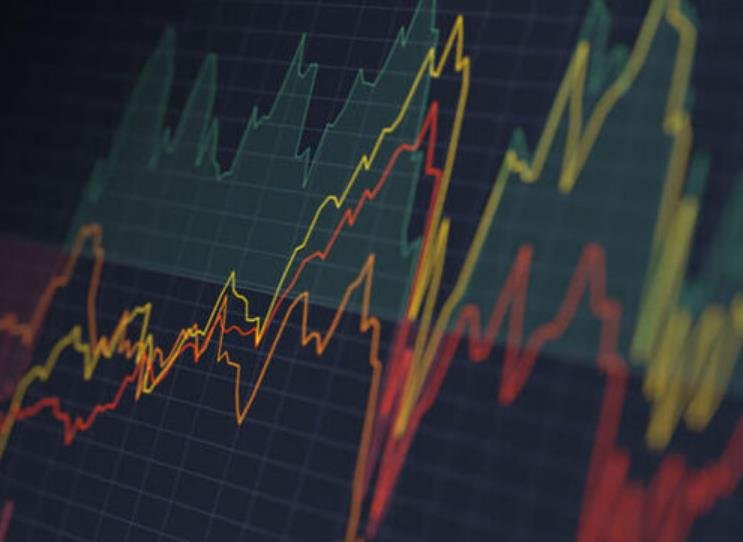The economic ties between Egypt and Saudi Arabia have reached new heights, with trade exchanges increasing by nearly 34% year-on-year in the first nine months of 2024. This surge underscores the strengthening relationship between the two nations and highlights the significant growth in both exports and imports.
In a statement released on Monday, the Central Agency for Public Mobilization and Statistics (CAPMAS) reported that the trade exchange between Egypt and Saudi Arabia climbed to $7.5 billion in the first nine months of 2024, up from $5.6 billion during the same period in 2023. This impressive growth coincided with President Abdel Fattah Al-Sisi’s participation in the Extraordinary Arab-Islamic Summit held in Riyadh, emphasizing the pivotal role of high-level diplomatic engagements in boosting bilateral trade.
Surge in Egyptian Exports and Imports
The data reveals a balanced growth in both Egyptian exports to and imports from Saudi Arabia. Egyptian exports surged by 26.3%, reaching $2.4 billion compared to $1.9 billion in the previous year. On the other hand, imports from Saudi Arabia saw an even more substantial increase of 37.8%, totaling $5.1 billion, up from $3.7 billion in 2023.
Top Export Commodities from Egypt to Saudi Arabia:
- Copper and Its Products: $459 million
- Vegetables and Fruits: $293 million
- Ready-Made Clothes: $128 million
- Electrical Appliances: $215 million
- Iron and Its Products: $167 million
Leading Import Commodities from Saudi Arabia to Egypt:
- Fuel and Mineral Oils: $3.4 billion
- Plastics and Their Products: $984 million
- Organic Chemical Products: $208 million
- Aluminium and Its Products: $158 million
- Paper and Paper Pulp Products: $81 million
| Category | Volume in 9M 2024 (USD) | Volume in 9M 2023 (USD) | YoY Growth (%) |
|---|---|---|---|
| Egyptian Exports | $2.4 billion | $1.9 billion | +26.3% |
| Egyptian Imports | $5.1 billion | $3.7 billion | +37.8% |
| Total Trade Exchange | $7.5 billion | $5.6 billion | +33.9% |
Investment Flows and Economic Implications
Investment activities between the two countries also reflected significant movements. Saudi investments in Egypt amounted to $511.3 million in the first nine months of the fiscal year 2023/2024, down from $2.3 billion in the same period the previous year. Conversely, Egyptian investments in Saudi Arabia stood at $147.1 million, a slight decrease from $190.1 million in 2023.
Despite the dip in investment from Saudi Arabia, the overall trade growth indicates a healthy economic relationship bolstered by increased imports of essential commodities and a steady rise in exports of industrial and consumer goods from Egypt.
Remittances: A Pillar of Bilateral Relations
Remittances continue to play a vital role in the economic landscape between Egypt and Saudi Arabia. In the fiscal year 2022/2023, remittances from Egyptians working in Saudi Arabia totaled $8.3 billion, up from $11 billion in 2021/2022. On the flip side, remittances from Saudis working in Egypt reached $26.1 million, a rise from $17.1 million.
The substantial presence of Egyptians in Saudi Arabia, estimated at 1.1 million in 2023, underscores the importance of labor mobility in sustaining economic ties and supporting households back home.
Strategic Importance of Key Commodities
The significant growth in trade exchange can be largely attributed to the strategic importance of key commodities traded between Egypt and Saudi Arabia.
Egyptian Exports:
- Copper and Electrical Appliances: These are crucial for Saudi Arabia’s ongoing infrastructure and industrial projects.
- Vegetables, Fruits, and Ready-Made Clothes: Reflect the growing consumer market in Saudi Arabia, driven by population growth and increasing disposable incomes.
Saudi Imports:
- Fuel and Mineral Oils: Essential for Egypt’s energy needs and industrial activities.
- Plastics and Aluminium Products: Support various sectors, including construction, manufacturing, and consumer goods.
Impact of the Extraordinary Arab-Islamic Summit
President Abdel Fattah Al-Sisi’s participation in the Extraordinary Arab-Islamic Summit in Riyadh played a pivotal role in strengthening economic ties. The summit provided a platform for both nations to discuss and negotiate trade agreements, investment opportunities, and collaborative projects aimed at fostering mutual growth.
“Such high-level engagements are crucial for enhancing our economic partnership and exploring new avenues for cooperation,” stated a CAPMAS official. “The outcomes of the summit have already started to reflect in our robust trade figures.”
Future Prospects: Sustaining Growth and Diversification
Looking ahead, both Egypt and Saudi Arabia aim to sustain the momentum in their trade relationship by diversifying their economic activities and exploring new sectors for collaboration.Technology and Innovation: Collaborating on technological advancements and innovation-driven projects.
- Renewable Energy: Joint ventures in renewable energy to support sustainable development goals.
- Tourism and Hospitality: Expanding cooperation in tourism to boost both economies through increased tourist inflow and joint promotional activities.
Challenges and Opportunities
While the trade relationship is on an upward trajectory, several challenges need to be addressed to ensure sustained growth.
Challenges:
- Economic Fluctuations: Global economic uncertainties could impact trade volumes.
- Regulatory Hurdles: Navigating the regulatory landscapes of both countries requires continuous effort and adaptation.
- Investment Climate: Enhancing the investment climate to attract and retain investments from both sides.
Opportunities:
- Expanding Trade Networks: Leveraging existing trade agreements to explore new markets.
- Strengthening Bilateral Relations: Building on diplomatic ties to facilitate smoother trade operations and conflict resolution.
- Innovative Collaborations: Engaging in joint research and development projects to foster innovation and competitiveness.
A Promising Economic Partnership
The 33.9% increase in trade exchange between Egypt and Saudi Arabia in the first nine months of 2024 highlights the strength and potential of their economic partnership. With strategic investments, diversified trade, and robust diplomatic engagements, both nations are well-positioned to continue their trajectory of mutual growth and development.
As the Economic Council continues to foster collaboration and address challenges, the future of Egypt-Saudi Arabia trade relations looks promising, paving the way for a more integrated and prosperous Middle East.

